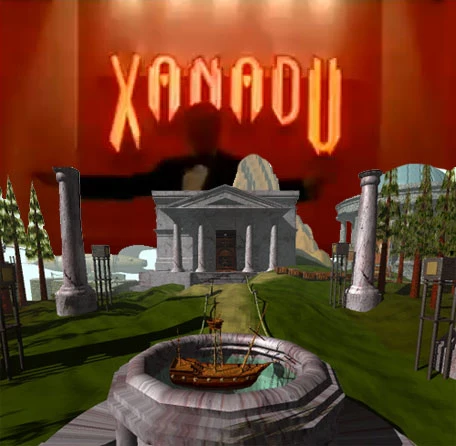
Classic Literature Adapted into Video Games Adapted into Comics!
Today sees the release of "Dante's Inferno," which is to say a comic book
based on a video game based on the first part of the 14th century epic religious poem by Dante Alighieri, which is kind of insane. Here at ComicsAlliance, we wondered might happen if other classic texts of literature and poetry were adapted into popular video games -- and those were adapted again into comics. Chris Murphy and Alice Parker examine the "Love Song of J. Alfred Prufrock" as a Mario title, "Crime and Punishment" as "Grand Theft Auto," and "Titus Andronicus" as "Cooking Mama," with Photoshops by Caleb Goellner!

The Video Game - At the young age of 22 T. S. Eliot published the modern masterpiece as precursor for his epic poem "The Waste Land." Prufrock is rich in its imagery, but seems a like a main character who delivers a stream of consciousness dramatic monologue about his failures in love. A how-to manual for the modern hipster, the poem is picked up by Nintendo after third-wave sexuality hits Japan. As Mario, you wonder around a seemingly endless Bowser-Castle Level while a hauntingly pale Princess Peach remains just out of reach, muttering, "No, that's not what I meant. That's not what I meant at all." After thousands of suicides in Tokyo, the game is banned from release in America.
The Comic Adaptation - Peter David and Jae Lee return after their successful run on Steven King's Dark Tower series, in which Prufrock kills his father, the source of his insecurity, and impregnates a silent, but grateful Peach who is always drawn with a halo of sunshine behind her billowing dress.
-A.P

The Video Game - Shakespeare's tragedy of war and revenge is translated into a hybrid game with two distinct play styles. In the first, a stealth action game in the tradition of Metal Gear Solid or Assassin's Creed, players take control of the titular character as he hunts down those who wronged his family and then enacts brutal revenge. After each victim is claimed, Titus Andronicus changes to a puzzle game in the style of Nintendo's Cooking Mama series. Titus must prepare each corpse to suit the tastes of the victim's unsuspecting family. The difficulty gradually raises from infirm old men whose families enjoy basic soups to soldiers in their prime whose relations are accustomed to finely grilled meats prepared in elaborate sauces with multiple side dishes. It's exclusive to the Wii, with full motion controls. And as a result of the game's violent content combined with puzzle gameplay no one buys it despite glowing reviews.
The Comic Adaptation - Avatar decides to jump on the rights to this one, handing it over to writer Garth Ennis and artist Juan Jose Ryp. Ennis and Ryp go well beyond their previous personal best achievements in violence and gore, as with each passing issue less time is spent on plot and more is spent on multiple page long scenes with gruesome close ups of bodies being carved and eaten. Although editors draw the line when Ennis suggests the inclusion of actual recipes starting in issue four. The horrific violence and gore, in combination with Ryp's artwork accidentally depicting modern Goths instead of the ancient Roman variety, results in the comic outselling the video game by a tremendous margin.
-C.M.
The Video Game - The classic Greek comedy by Aristophanes is a story of women organizing a campaign to withhold sex from their men in order to bring about a peaceful resolution to the Peloponnesian War. The video game adaptation reimagines it as a real time strategy war game built around a resource management system. But unlike other games which require the acquisition of currency or building materials in order to create a massive army, Lysistrata requires players to worry about only one thing: sex. Each new unit created or aggressive order given results in the female population of your city state becoming a little bit more upset at the war effort. Remain peaceful for a little while and they'll start to forgive and forget, but do too much at once and they start to withhold sex from your troops, resulting in desertions and eventually full-on rebellion. The game's good, but not good enough that anyone plays it for days-long gaming sessions that end in death by dehydration.

The Comic Adaptation - Wildstorm takes the video game to comic adaptation once again, with DC bringing writer Gail Simone and artist Amanda Conner on board to give the book a creative team of two of the most noted women in mainstream comics. The comic is told from the point of view of one woman who, upset with her boyfriend's performance in bed, attempts to start a war between Athens and Sparta with the hope that it will start a sex strike rather than risk hurting his feelings by telling him the truth. Following its success, Dave Sim decides to write and draw his own comic based on the original play, wherein the men learn having sex with women isn't really that great and that they get a much greater sense of self-worth from killing and military conquest.
-C.M.

The Video Game - H.G. Wells' seminal work of science fiction becomes an action packed first person shooter. The novel's time-traveling hero, carrying an arsenal of weapons gathered from across various historical eras, travels from 1895 to the far future of 2010. There he must combat elite soldiers, robots, ghost ninjas and cyborg mole-men, all of whom stand in the way of his ultimate goal: preventing a video game company from adapting H.G. Wells' classic novel The Time Machine into an entirely inappropriate first person shooter. Because really, how ridiculous is it that some video game makers are so creatively bankrupt that they turn classic pieces of literature into thematically unrelated action games out of the hope that the name recognition will someone mean more people buy their terrible game?
The Comic Adaptation - And then the comic adaptation is offered to Grant Morrison, who surprises pretty much everyone by accepting the job. Paired with artist Dave McKean, Morrison takes the storyline of the game and adds another layer. As the time traveler reaches the future, he's met by comics writer Grant Morrison, who feeds him the inside information he needs to carry out his mission thanks to Morrison's work as the writer of the comic adaptation of the game. If read for more than a page at a time, the book causes severe headaches followed by nosebleeds followed by blackouts. Unfortunately, the series is so good that comic book shop owners are forced to hire EMTs every Wednesday a new issue is released, effectively canceling out any profit it makes them.
-C.M.
The Source Material - The Upanishads

The Video Game - A collection of core teachings from the Hindu Vendanta that spans nearly two thousands years is decidedly too complicated for EA, who decides to whittle the sacred text down to a hip Indian version of "Ninja Gaiden," complete with a techno-infused Bollywood soundtrack. In order to enter "Nirvana", you must take on an Indian mob boss, who (surprise!), is in cahoots with a cornucopia of demons. Most of your adversaries have the exact same attacks as the game continues, but inflict exponentially more damage each level. Due to the laziness on the part of the game developers, Indian gods both benevolent and malevolent are portrayed as villains. Gods from China and Japan show up too, for no reason. Besides attacks and level layout, the third constant is the fact that every boss has multiple arms and the ability to wield a fiery sword.
The Comic Adaptation - While rumors spread of someone, somewhere beating the game, no one seems to see another human being accomplish the task. EA refuses to acknowledge the game's existence after an avalanche of lawsuits, but this doesn't stop Dynamite from picking up the license. Garth Ennis agrees to pen the hyper-violent series in which the main character kills every last Asian god before entering "Nirvana", which turns out to be a dingy bar run by an old white man who speaks Gaelic. Although critics consider the graphic novel to be the worst thing since Frank Miller's "DK2," Zack Synder agrees to direct an upcoming film adaptation starring Tom Cruise.
-A.P.

The Video Game - Samuel Coleridge wrote, and finished (or didn't, depending on your literature orientation) "Kubla Khan: or, A Vision in a Dream: A Fragment" in 1797, based on a kick-ass dysentery-induced opium hallucination that was interrupted part way through, causing Coleridge to forget the rest of his vision. Anyway, the poem is a grand metaphor about the self-destructive process during the creation of art, the art itself imploding, and the all too often end result of futility. Either way, it makes a for a super fun game in the style of Myst, where you travel around a beautiful landscape for a great deal of time only to find that there is an unknown force, probably involving dark-deity forces and/or unrequited love, that is threatening your world. The second you gear up for battle your XBox 360 red-rings and you're forced to take it back to Best Buy, only to have the Geek Squad claim your version is "past the in-store date quick fix" and refers you to a 1-800 number.
The Comic Adaptation - Due to the inevitable crash of the game, the final version of the comic by Camilla D'Errico is never colored. An indie publisher picks it up eventually, but it remains an obscure hit only among post-intellectual manga fans and college girls who wear cat ears.
-A.P.
The Video Game - Dostoyevsky's timeless story of crime, justification for wrongdoing, and struggling with guilt is translated into a a Grand Theft Auto-like open world action game. Players take on the role of intellectual-turned-vigilante-crime-fighter Rodion Romanovich Raskolnikov as he embarks on a self-imposed one man campaign to find the truly evil and rid the world of their influence. Gritty 19th century St. Petersburg is recreated in exquisite detail as Raskolnikov scales rooftops and engages in moderate speed hay cart chases. Eventually he learns to build his own steampunk inspired crime fighting gear including a black-powder netgun and a steam-driven pneumatic power axe. Like most open-world games, the player is presented with a series of choices between good and evil actions that end up having no impact whatsoever on the game's main plot.

The Comic Adaptation - The go-to gritty pulp crime comic team of Ed Brubaker and Sean Phillips gets the call for this one. Extensive research is done into the popular slang of mid 19th century urban Russia in order to get the dialogue just right. Their miniseries see Raskolnikov getting brought in by the security forces of Czar Alexander II to infiltrate and assassinate the leader of an secret cult conspiring to bring down the government. Told his sister is as good as dead if he fails, Raskolnikov befriends a reformed prostitute in order to get close to her boyfriend, the cult's leader, the father of Mad Monk Grigori Rasputin. It all ends with a final showdown in the midst of a winter thunderstorm on top of the onion domes of Saint Basil's Cathedral.
-C.M.
Elsewhere On The Web: The Saturday Morning Watchmen cartoon! (Gorilla Mask)
The Saturday Morning Watchmen cartoon! (Gorilla Mask)
 100 MPH Lawnmower (Neatorama)
100 MPH Lawnmower (Neatorama)
 Zombie Hooker XXX-Mas (Adult Swim)
Zombie Hooker XXX-Mas (Adult Swim)
More From ComicsAlliance








![Jorge Vargas’s Video Game Mashup Art Is Everything My Childhood Wanted [Art]](http://townsquare.media/site/622/files/2014/05/JV00.jpg?w=980&q=75)
